What is a buyer’s agent? How are they different from real estate agents?
A buyer’s advocacy is a type of real estate agent who represents the interests of the buyer in a real estate transaction. They help buyers find and purchase properties that meet their needs and budget, negotiate the terms of the sale, and guide them through the closing process.
The main difference between a buyer’s agent and a traditional real estate agent is their focus. A traditional real estate agent typically represents the seller of a property and works to secure the highest possible price for that seller. In contrast, a buyer’s agent works solely on behalf of the buyer, with the goal of helping them find the best property at the best price.
Another key difference is in the duties and responsibilities of each type of agent. A buyer’s agent
- Conducts a comprehensive search of properties that meet the buyer’s criteria,
- Provides guidance on the local real estate market,
- Assists with making offers and negotiating the terms of the sale
- Helps with the closing process
- Keeps their client’s information confidential and acts in their client’s best interest at all times.
Overall, both real estate agents and buyer’s agents are licensed professionals who are knowledgeable about the real estate industry. But buyer’s agents provide specialized services to buyers that are tailored to their needs and interests.
Pricing Models for Australian Buyers Agents
Before you look at the pricing models, it is important to bear in mind that for real estate investors, buyer’s agent fees are tax deductible. But, for owner-occupied property purchases, that is not the case. Hence, it will save you some money if you are an investor.
The fees that a buyer’s agent charges in Australia can vary depending on several factors, such as:
- The location: For houses closer to the transportation lines and the city, the valuation is usually higher. This means that if you wish to buy a house in the city, the percentage you’ll pay your agent would be on the higher end as well.
- The level of service: You can circumvent the above costs by reducing the workload of the buyer’s agent. If the agent is expected to do a property search, negotiate prices, bid at auctions, etc., it will cost you more. Instead, if you use their expertise in areas where you don’t feel confident (for eg. negotiating the best price), it will cost you less.
- The complexity of the transaction: For instance, if your property of interest has many competing prospective buyers, it would up the stakes. Similar situations can complicate the process and hence would demand more time and effort from your agent. This would reflect a higher fee.
Generally, buyer’s agents in Australia charge a flat fee, a tiered percentage, or a percentage of the purchase price.
1. Flat fee:
The flat fee can range from a few thousand dollars up to tens of thousands of dollars, depending on the agent’s level of service and the type of property being purchased. It is most common in places where the agent is expected to only do one or two tasks involved in buying a property (like property search, legal due diligence, etc.)
2. Tiered Fee:
A tiered fee is applied when the valuation of your dream property is somewhat predictable. This means that you would pay, let’s say, $50,000 if your property costs above $1 million. Similarly, you’d pay around $10,000 if your property costs between $500,000 to $800,000. These numbers are bound to market fluctuation and hence would need to be negotiated with the buyer’s agent before you go forward with a deal.
3. Percentage-based fee:
The percentage-based fee can range from around 1% to 3% of the purchase price, again depending on the agent and the property.
It’s worth noting that fees and charges associated with real estate transactions can be subject to negotiation, and there is no fixed industry standard for how much a buyer’s agent should charge. As a result, buyers must research and compare the fees and services of different buyers’ agents to find the one that best suits their needs and budget. Buyers should also ensure that they have a clear understanding of what services are included in the agent’s fee. As well as any additional costs or expenses that may arise during the transaction.
Here are some estimated costs of a buyer’s agent based on property valuations in specific Australian cities:
Sydney: A buyer’s agent in Sydney may charge anywhere from 1.5% to 2.5% of the property purchase price. This can range from $15,000 to $50,000 or more for a property valued at $1 million or above.
Melbourne: A buyer’s agent in Melbourne may charge a similar fee to Sydney, ranging from 1.5% to 2.5% of the property purchase price. This would equate to around $15,000 to $50,000 or more for a property valued at $1 million or above.
Brisbane: A buyer’s agent in Brisbane may charge a lower fee compared to Sydney and Melbourne, typically around 1.5% to 2% of the property purchase price. For a property valued at $1 million or above, this would equate to around $15,000 to $40,000.
Perth: The cost of a buyer’s agent in Perth can vary, but typically ranges from 1% to 2% of the property purchase price. This would equate to around $10,000 to $20,000 or more for a property valued at $1 million or above.
Conclusion:
It’s important to note that these are only estimates. The actual cost of a buyer’s agent may vary depending on a variety of factors, including the level of service provided, the complexity of the property purchase, and the negotiation of fees. It’s always a good idea to shop around and compare the fees and services of different buyers’ agents before making a decision.




